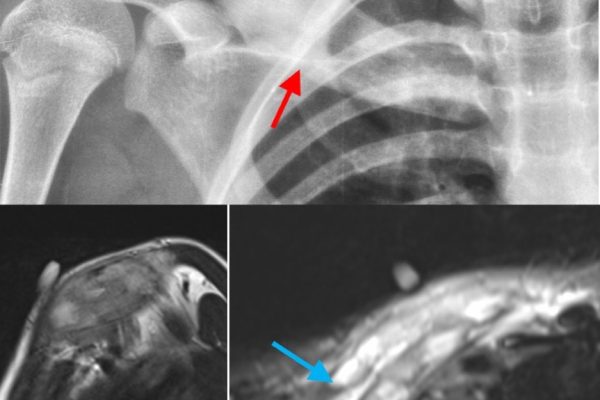How MRI Can Detect Brain Abnormalities and Neurological Conditions
The human brain is both delicate and extraordinary, holding the key to every action we take. It controls how we think, feel, move, and experience the world around us. But when something goes wrong, whether it’s frequent headaches, seizures, sudden memory lapses, or unexplained weakness finding the cause is often challenging. This is exactly when the precision of MRI matters most.
MRI (Magnetic Resonance Imaging) is a non-invasive technique that produces highly detailed pictures of the brain, revealing abnormalities that may otherwise go unnoticed. From tumours and strokes to delicate chemical changes in the brain, MRI helps doctors uncover what the eye can’t see. The ability to look inside the brain without surgery has transformed into how neurological conditions are diagnosed and treated.
We’ve seen firsthand how the right scan at the right time can completely change a patient’s journey. From identifying early-stage brain tumours to helping confirm cases of multiple sclerosis, MRI gives families the answers they need at some of life’s most critical moments.
In this blog, we’ll explore how MRI works, the conditions it can detect, the advanced brain MRI services we offer, and why seeking an MRI second opinion can bring greater clarity and confidence.
How Does MRI Work?
MRI works differently from X-rays or CT scans. It doesn’t rely on radiation but instead uses a powerful magnetic field and radio waves to generate images of the brain’s structures.
The first step in an MRI scan is when hydrogen atoms in your body respond to a strong magnetic field by aligning together. Short bursts of radiofrequency pulses then disturb this alignment, and as the atoms return to their original state, they release signals. A computer then converts these signals into sharp, cross-sectional brain images.
What makes MRI invaluable in neurology is its unmatched ability to show intricate soft tissue details. It allows doctors to see differences between healthy and abnormal tissues that other imaging methods might miss. The technology also offers multiple imaging modes, each designed to highlight different features, such as blood vessels, brain chemistry, or functional activity.
Why MRI is Especially Valuable for Brain Imaging
- Soft tissue clarity – Unlike bone-focused X-rays, MRI excels at imaging delicate brain structures.
- Multiple imaging perspectives – It produces 3D cross-sectional images from different angles.
- Advanced functional scans – MRI can even track brain activity, measure blood flow, or analyse chemical changes in the tissue.
- For patients undergoing MRI in Mumbai, access to advanced 3 Tesla (3T) machines means sharper images, shorter scan times, and more accurate results.
Conditions MRI Can Detect in the Brain
MRI scans are one of the most powerful diagnostic tools when it comes to brain health. From life-threatening emergencies to chronic neurological conditions, MRI provides detailed images that guide doctors in making accurate decisions. Below are some of the key conditions MRI helps detect and manage:
1. Stroke and Vascular Disorders
Stroke is one of the most common neurological emergencies, and time is everything when it strikes. MRI helps pinpoint blockages, clots, or bleeding in the brain, showing exactly which areas are affected. Advanced scans such as Brain Angio go further by mapping blood vessels in detail.
- Detects both ischaemic (blockage-related) and haemorrhagic (bleeding-related) strokes.
- Helps determine whether immediate clot-busting medication or surgical intervention is needed.
- Guides doctors in planning long-term rehabilitation.
Example: Many patients arrive at the emergency room with sudden weakness, slurred speech, or loss of vision. A quick MRI can confirm a stroke within minutes, ensuring life-saving treatment begins on time.
2. Brain Tumours and Cancers
When it comes to tumours, early and accurate detection is critical. MRI scans deliver detailed insights into the dimensions, placement, and advancement of brain tumours. Specialised protocols like the MRI Brain Tumour Protocol are designed to provide maximum clarity.
- Differentiates between benign (non-cancerous) and malignant (cancerous) growths.
- Helps in staging tumours and planning surgery, radiation, or chemotherapy.
- Provides insights into recurrence during follow-up scans.
Example: Patients with unexplained seizures or chronic headaches often undergo MRI. The scan not only reveals if a tumour is present but also allows doctors to plan treatment with precision.
3. Multiple Sclerosis (MS) and Demyelinating Diseases
Multiple Sclerosis is notoriously tricky to diagnose early. MRI, however, detects even subtle changes in the brain’s white matter caused by demyelination (damage to nerve insulation).
- Reveals brain lesions linked to MS and shows whether they are increasing.
- Guides doctors in assessing whether medications are slowing progression.
- Allows for regular monitoring of treatment effectiveness.
Example: For someone experiencing unexplained tingling, weakness, or vision problems, an MRI often provides the first solid evidence pointing toward MS.
4. Epilepsy and Seizure Disorders
Epilepsy affects millions worldwide, and in drug-resistant cases, MRI can be life changing. The scan identifies structural abnormalities or damaged tissue that trigger seizures. Advanced techniques like MRI Spectroscopy add chemical insights for deeper understanding.
- Locates seizure “focus areas” in the brain.
- Assists neurosurgeons in planning corrective surgeries.
- Helps differentiate epilepsy from other causes of seizures.
Example: For patients who don’t respond to medications, MRI can reveal the exact region causing seizures, offering hope for long-term relief through surgery.
5. Dementia and Memory Disorders
As memory-related conditions rise with ageing populations, MRI plays a vital role in early diagnosis. It detects shrinkage, structural changes, and patterns associated with different forms of dementia.
- Identifies brain atrophy (shrinkage) linked to Alzheimer’s disease.
- Differentiates between Alzheimer’s, vascular dementia, and other memory disorders.
- Provides families and caregivers with the clarity needed to prepare for treatment and future care.
Example: For families noticing changes in a loved one’s memory or behaviour, MRI offers clarity sometimes even years before symptoms fully manifest.
6. Advanced Brain MRI Services at Picture This by Jankharia
At our MRI centre in Parel, we provide specialised studies designed specifically for brain and neurological evaluation. Using advanced 3T MRI technology, we offer:
| Brain MRI Study | Purpose |
| MRI Per Region (Brain, Cervical, LS, DL Spine, etc.) | High-resolution imaging of specific brain or spine regions for targeted evaluation |
| Brain Angiography (MRA) | Detailed study of blood vessels to detect aneurysms, blockages, or malformations |
| MRI Spectroscopy (Brain) | Analyses brain chemistry, useful for tumors, metabolic disorders, or infections |
| MRI Perfusion (Brain) | Measures blood flow to identify stroke areas or evaluate tumor vascularity |
| MRI Brain Tumour Protocol | Comprehensive protocol for tumor detection, grading, and treatment planning |
Why an MRI Second Opinion Matters
Sometimes patients feel uncertain about their MRI results, especially when facing difficult treatment decisions. In such cases, an MRI second opinion provides reassurance and clarity.
A second opinion can help in several ways:
- Confirm the diagnosis – Was the first interpretation accurate?
- Provide fresh insights – A new radiologist may notice subtle findings that were overlooked.
- Support decision-making – For surgeries, long-term therapies, or life-changing conditions, having another expert perspective ensures confidence.
At Picture This by Jankharia, we often review scans performed elsewhere, giving patients peace of mind that comes with accurate interpretation and expert consultation.
Key Takeaways
- When it comes to brain imaging, MRI is the benchmark for accuracy and clarity.
- It detects tumours, strokes, MS, epilepsy, neurodegenerative diseases, and more.
- Advanced services such as spectroscopy, perfusion, and angiography provide deeper insights.
- An MRI second opinion helps patients feel confident about critical health decisions.
- Access to advanced MRI in Mumbai ensures world-class imaging and accurate results.
Conclusion
The brain may remain one of the most complex organs in the human body, but with MRI, we have a powerful tool to see inside it. From diagnosing life-threatening strokes to identifying subtle changes in memory-related regions, MRI continues to shape the way neurological conditions are managed.
At Picture This by Jankharia, we believe in the value of accuracy, clarity, and compassion in patient care. Whether you’re getting your first MRI or seeking a trusted MRI second opinion, the right imaging partner can make all the difference in your health journey.
Frequently Asked Questions
Yes, patients can undergo MRI with confidence, as the scan does not expose them to any harmful radiation. Instead, it uses magnetic fields and radio waves. However, there are a few exceptions. Patients with certain implants such as pacemakers, cochlear implants, or some metallic surgical clips may not be able to undergo MRI safely. In such cases, your doctor will suggest alternative imaging.
Key safety points include:
- No exposure to radiation.
- Safe for children and repeated use.
- Special protocols for patients with implants.
Your doctor may recommend an MRI if you have unexplained symptoms such as:
- Frequent headaches that don’t respond to treatment.
- Seizures or sudden fainting spells.
- Memory problems or confusion.
- Weakness, numbness, or difficulty with movement.
In some cases, MRI is ordered after other tests (like CT or blood work) suggest a neurological issue. If your symptoms persist and remain unexplained, MRI can be the next step to find answers.
Yes. If your condition is complex or the treatment plan is major such as surgery, chemotherapy, or long-term medication it is wise to get a second opinion. Even small differences in interpretation can change how doctors approach your treatment.
Benefits of a second opinion include:
- Confirmation of your diagnosis.
- Different perspectives from specialised radiologists.
- Greater peace of mind before starting treatment.
The cost of undergoing a brain MRI in Mumbai changes according to the complexity of the scan and the diagnostic tools used. Basic scans may be less expensive, while advanced studies like spectroscopy or perfusion can cost more. Choosing a reputed MRI centre in Parel ensures access to high-end 3T machines, faster reporting, and expert radiologists specialising in brain imaging. While the cost may be slightly higher, the accuracy and reliability of results often make it worthwhile.



